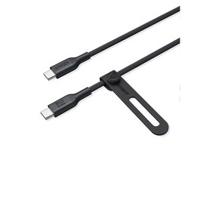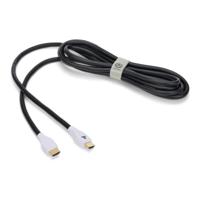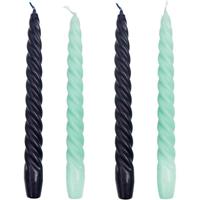About Measuring Cords
A digital multimeter is probably one of the most versatile measuring instruments out there. They can measure voltage, current, resistance, and continuity. However, the test leads that use is as important for accurate readings as the meter itself.
Some people refer to a multimeter as a volt-ohm meter. Even though it might be confusing at times, this is a good enough description of multimeters. They measure all the different variables, like current, voltage, resistance, and continuity, that are related to voltage and resistance in one way or the other. Even though almost all of the complex parts of a multimeter are inside the meter casing, the quality and build of the leads can significantly impact the accuracy of the results. Read this article to know more about test leads. Having a better understanding of them will help you make the right decisions when you are shopping for them.
Four best test lead kits that you can buy
Even an expensive multimeter can show incorrect readings if you use a dodgy test lead. Moreover, a poor-quality lead can even be a safety hazard in the worst cases. Therefore, there is no point in spending a lot of money on a great quality multimeter and then getting a cheap lead. The lead should have a comparable standard as that of the multimeter. But if you want the best results, then you should probably get the best test leads out there. Here is a list of four of the best multimeter leads for different price categories.
Klein Tools multimeter test leads
If you want a decent quality leads for a budget, then this is a great option. It comes with a pair of alligator clips and the leads stay in place inside multimeters snugly. This might not be the lead that gives you the most varieties of accessories and features. However, this is a pretty good option for most of the basic needs. The material used for the leads is pretty durable as well. While other budget leads that only last for a couple of months, this can last for decades without any issue. Measuring only forty-one inches long, this is shorter than most other leads.
Amprobe electrical test probes
These probes measure longer than the Klein Tools test leads. Exactly, seven inches longer than the previous one, measuring forty-eight inches in total length. It is not staggeringly long. However, its length is convenient enough for most uses. When you consider the price of the leads, it is only slightly pricier than the Klein Tools test leads. When you buy Amprobe test probes, you get a set of threaded probe tips and alligator clips. Having an alligator clip comes in handy when you are working with a multimeter because you don’t have to hold the clip with your hands all the time.
Fluke test leads
This is probably one of the best test leads out there that money can buy. What makes these leads the best in class is because it is reasonably priced, accurate, and reliable. So, if you want a pair of leads that you can trust, you ought to get these. Even though these might cost you a little more than other types of leads, when you consider the features and the quality of the build, the price is worth it. You can pull back the sleeves on the leads and expose the leads as much as you want. Measuring a whopping fifty-six inches, these leads are also quite long.
Proster test leads
If you want the most affordable test leads but do not want totally crappy leads, then you should go for Proster leads. This is a relatively short lead and is only thirty-one inches long. This length is enough to just test comfortably. Also, these leads do not come with alligator clips. So, you have to hold the pins to the contacts when you are testing. In short, this is not the most comfortable lead out there. But if you want to get the job done for the least amount of money, and also want something that is durable and well made, this is a great option.
Tips on how to buy Test Leads
Finding the right multimeter leads can be harder than you might think. Even though the leads vary in quality, materials, voltage ratings, and safety standards, they all look very same from the outside. Because of that, it is really easy to choose the wrong one. But it is very important to use only the right lead for measuring electric current. It can be easier to select the right one if you know what criteria to consider in leads. Here are a few tips that you can follow when you are shopping for multimeter leads.
- Material – When it comes to most electronic components and instruments, the material can really make the difference. The material used in the lead can affect the readings that you get. Using inferior quality materials can alter the results because of high resistance. The same applies if there are dissimilar materials in the lead. Moreover, high resistance can also make the leads less sensitive to low voltages.
- Length of the leads – This one is about the convenience. The length might not be a huge issue if both contacts are close to each other. But in most cases, this might not be the case. In some cases, the electrical contacts can be a metre or two away from each other. So, the test leads should be long enough.
- Quality of the leads – There are a few factors that contribute to the quality of the leads. This includes the conductive material in the lead. It should be non-corrosive, strong, and low resistance. Along with that also check the physical condition of the leads. Make sure that the insulation on the leads are in good condition and there are no breaks.
- Safety standards and ratings – Both multimeters and leads have voltage and current ratings. You should not use a lead that is meant for low voltage application on a high voltage terminal. This can cause short circuits and even fires. There are also different safety standards. These include CAT I, CAT II, CAT III, etc.
Besides multimeters leads, there are a few other electrical instruments that you must have as a DIYer. These include insulators, cable channels, cable clamps, fuses, plugs, and bulbs. But the good news is that you can find all of them easily using our product search engine . You can also compare the prices and features of different products and pick the right one among them. Also, don’t forget to check out other amazing products from the DIY category.
Question & Answer
How to use a multimeter?
Multimeters usually come with dozens of different functions. You can use them to measure voltage, current, resistance, check breaks in the circuit and many other things. So, in order to learn to use all of those features, it would require hands-on experience. But the basics of using a multimeter is to connect the test leads to the electrical contacts, then set the multimeter to the corresponding mode. If you want to measure the voltage, you need to turn the knob and set it to voltage mode, if you want to measure the current, you should set it to the ampere mode, and so on and so forth.
How to check the multimeter test leads?
Before using multimeter leads, you should always test it for damages and make sure that they are working properly. The first step is checking the leads for visual damage. If there is no visible damage on the leads, then you can test the leads using a multimeter. Put the meter to resistance mode and touch the leads to each other. The reading in the meter should be equal to or less than .5 ohms. If it is more than that, test both leads separately. Also, check how good the connection is. Shake or wiggle the lead to check if the readings change when the leads are moving.
How to calibrate a digital multimeter?
To get accurate readings, you should calibrate the multimeter prior to taking the readings. However, calibrating a digital multimeter is an effortless procedure. To do that, set the device to the highest resistance range. Then take the test leads and touch the probes together. If the meter is properly calibrated, the reading should be 0 ohms. If it is not zero, then you should press the calibration knob on the meter until it reads 0 while keeping the probes in contact. As it only takes a couple of seconds, recalibrating is quite easy.
If you are looking to buy test leads online in the UAE, look no further as you are in the right place. There are more than 500 shops and brands offering them here on Shops.ae. These shops offer products from many popular brands, including Fluke, Megger, Snap-on, Klein, Hioki, and Amprobe.





